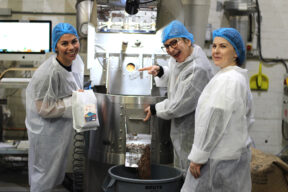Blogs
Blood Donor Day

“When Jack was 5 weeks old he received his first blood transfusion. The doctors told us that sometimes babies are born with a low Hb and by having a blood transfusion it should kick start his bone marrow.
This was not the case! Jack was not producing any red blood cells at all!
Red blood cells carry oxygen from the lungs to the rest of the body and then returns carbon dioxide from the body to the lungs so it can be exhaled (without them your body will eventually shut down).
Never did I think that by the time Jack hits 5 years old he would be receiving his 77th blood transfusion.
A huge thank you to all the blood donors for keeping my baby alive and allowing him to even get to his 5th birthday, because without you he truly would not be here today. “
This post, from the NHS Blood Donor Facebook Page is a good example of why it is so important that people volunteer to give blood.
The NHS collect blood donations throughout England to be used for life-saving and life-enhancing operations. Even though giving blood is so vitally important, only 3% of people aged 17 -70 in England and North Wales gave blood in the last year.
This year it is estimated that 200,000 new donors are needed to replace those who can no longer give blood.
The demand for blood never stops, so to reach this goal, more people are needed to help!
More people could be eligible to donate blood
The good news is that following the FAIR (For the Assessment of Individualised Risk) steering group’s recommendations and in line with the latest scientific evidence, blood donation will become more inclusive than ever before.
More people could be eligible to donate blood based on their health, travel and sexual behaviour.
New guidance means that the blood donor service will assess eligibility to give blood based solely on individual experiences, making the process fairer for everyone. You can read more about the upcoming changes here and you can find out about how to become a blood donor here by clicking the “register” button.
Being a blood donor saves lives
Giving blood saves lives. The blood you give is a lifeline in an emergency and for people who need long-term treatments. The key stats are that the NHS needs:
- Nearly 400 new donors a day to meet demand
- Around 135,000 new donors a year to replace those who can no longer donate
- 40,000 more black donors to meet growing demand for better-matched blood
- 30,000 new donors with priority blood types such as O negative every year
- More young people to start giving blood so we can make sure we have enough blood in the future




